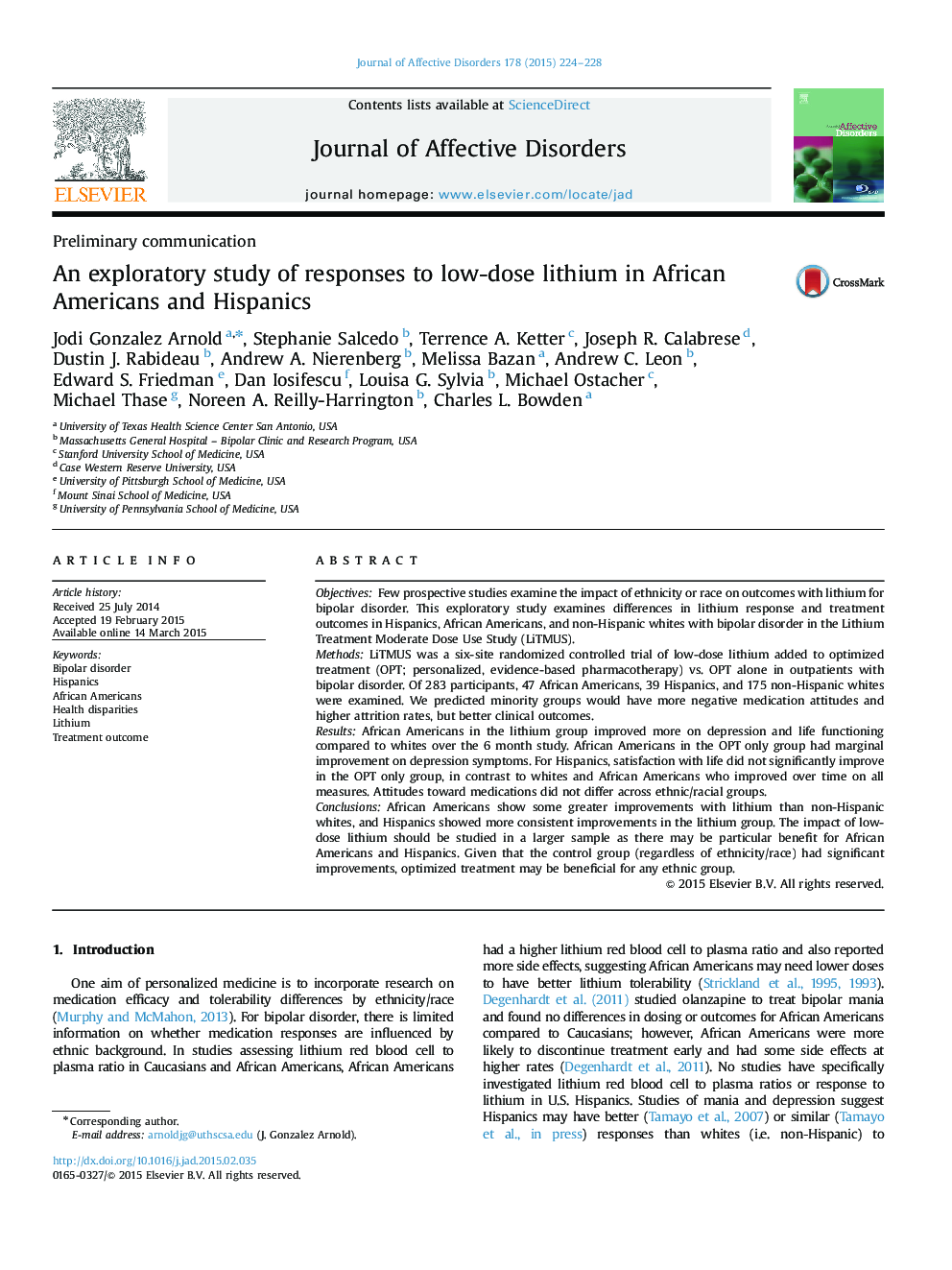| Article ID | Journal | Published Year | Pages | File Type |
|---|---|---|---|---|
| 6232124 | Journal of Affective Disorders | 2015 | 5 Pages |
ObjectivesFew prospective studies examine the impact of ethnicity or race on outcomes with lithium for bipolar disorder. This exploratory study examines differences in lithium response and treatment outcomes in Hispanics, African Americans, and non-Hispanic whites with bipolar disorder in the Lithium Treatment Moderate Dose Use Study (LiTMUS).MethodsLiTMUS was a six-site randomized controlled trial of low-dose lithium added to optimized treatment (OPT; personalized, evidence-based pharmacotherapy) vs. OPT alone in outpatients with bipolar disorder. Of 283 participants, 47 African Americans, 39 Hispanics, and 175 non-Hispanic whites were examined. We predicted minority groups would have more negative medication attitudes and higher attrition rates, but better clinical outcomes.ResultsAfrican Americans in the lithium group improved more on depression and life functioning compared to whites over the 6 month study. African Americans in the OPT only group had marginal improvement on depression symptoms. For Hispanics, satisfaction with life did not significantly improve in the OPT only group, in contrast to whites and African Americans who improved over time on all measures. Attitudes toward medications did not differ across ethnic/racial groups.ConclusionsAfrican Americans show some greater improvements with lithium than non-Hispanic whites, and Hispanics showed more consistent improvements in the lithium group. The impact of low-dose lithium should be studied in a larger sample as there may be particular benefit for African Americans and Hispanics. Given that the control group (regardless of ethnicity/race) had significant improvements, optimized treatment may be beneficial for any ethnic group.
